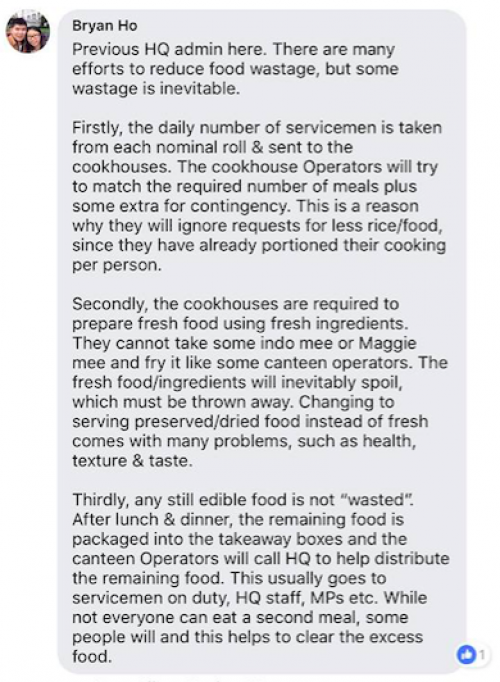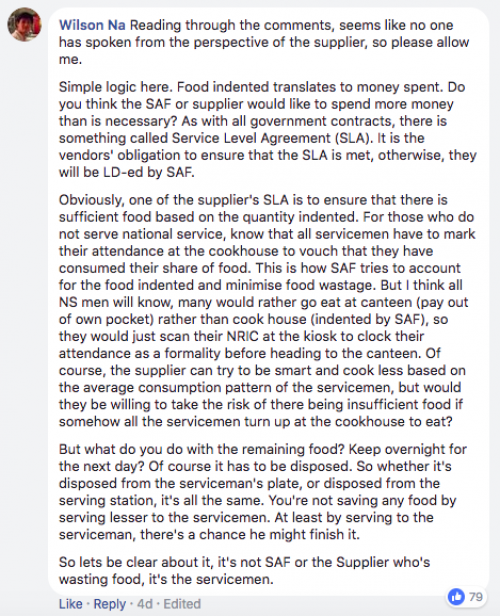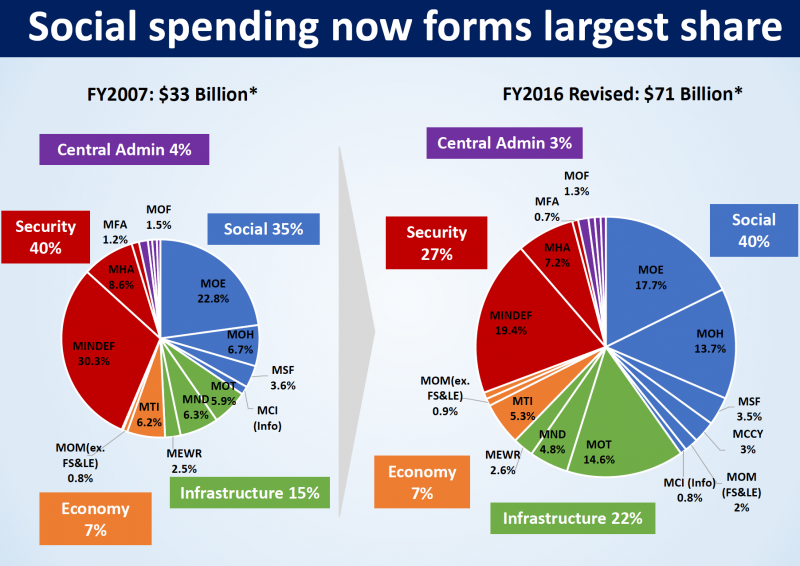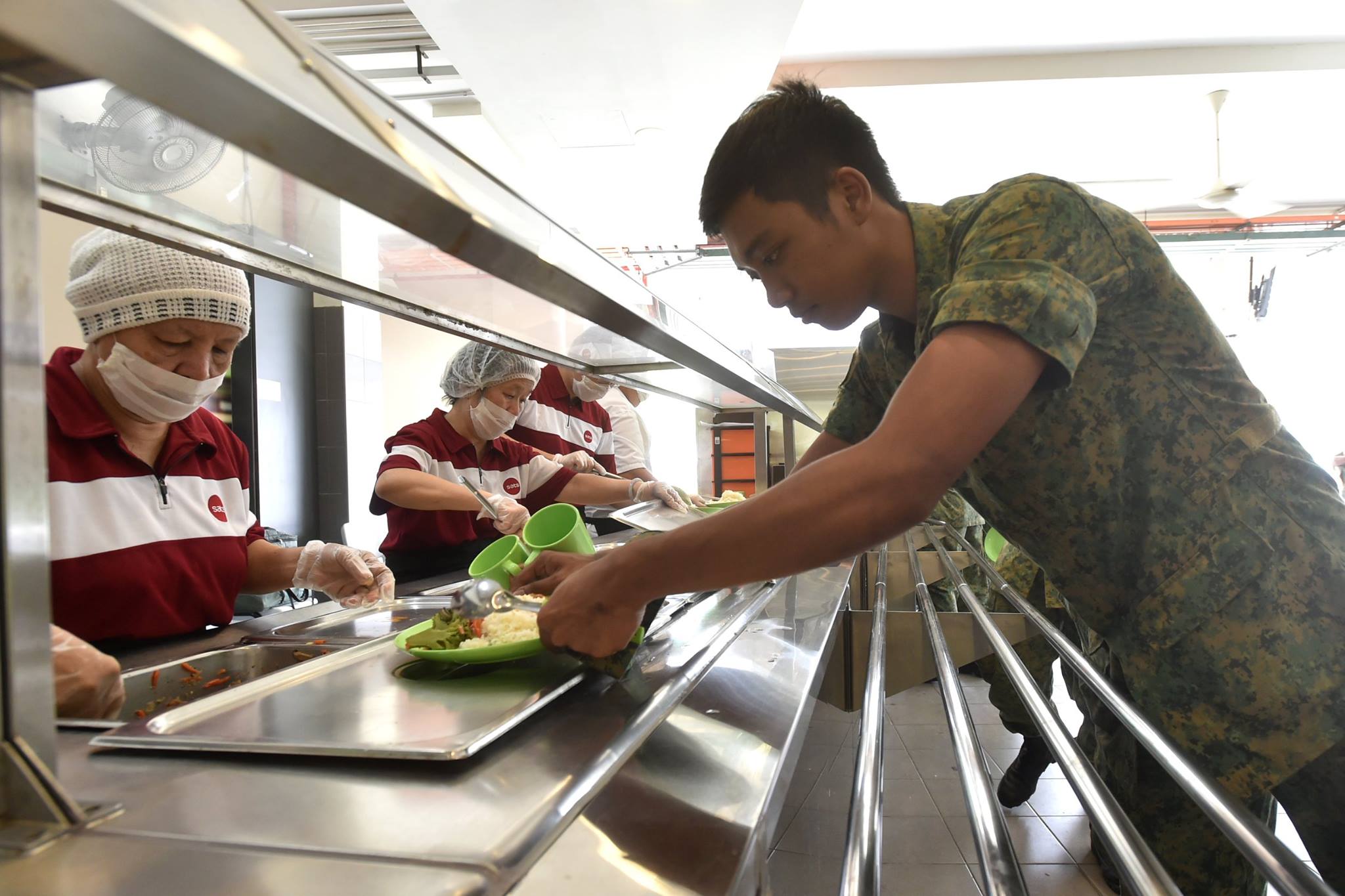On Jan. 27, 2018, The Straits Times published a forum letter from a concerned mother.
Here's the letter in full:
Address food wastage in army camps
In line with the nationwide drive to reduce food wastage in Singapore, I urge the Ministry of Defence to investigate the situation of food going to waste in army camps.
My son who is undergoing basic military training recently related how much leftover rice is discarded regularly by the soldiers because the servers ignore their requests for less rice.
The caterer, Foodfare, should also research the appropriate food to serve in camps.
For example, most boys I know detest ladies' fingers.
To serve this as a vegetable dish to these full-time national servicemen is the surest way of seeing food end up in the bin (ditto for eggplant and bitter gourd).
Another son who went for his reservist training at Pasir Laba Camp last month was served a very spicy noodle dish for breakfast very early in the morning of a live-firing exercise. It was mostly left uneaten.
As a mother who has trained her sons to not let food go to waste and to finish the food on their plates, I hope appropriate action will be taken so that the men serving national service will not view food wastage as a normal affair.
Vicky Chong (Madam)
I cannot take it, I must write letter
This ST forum letter contained the classic elements of a typical controversial missive:
- The overprotective parent
- The strawberry generation
- Many topics, such as food and National Service, that many people have strong opinions about
And it elicited the following predictable responses chastising the writer:
 Screen shot from Facebook.
Screen shot from Facebook.
 Screen shot from Facebook.
Screen shot from Facebook.
Got a point?
But much like how a broken clock is still right twice a day, the letter did have a point.
While the letter writer mentioned seemingly trivial things, such as how most boys she knew "detest" ladies' fingers (also known as okra), the issue of food wastage in the Singapore Armed Forces is real.
Overall, food wastage in general is a serious problem in Singapore.
[related_story]
In December 2017, the National Environment Agency released a statement on the subject.
It said:
"A household waste study commissioned by the National Environment Agency (NEA) has found that food waste accounted for about half of the waste disposed of by each Singapore household a day. Of this, more than half of the food waste could have been prevented through actions such as not over-ordering, over-buying or over-cooking."
So, why does the SAF always let so much food go to waste, by over-ordering, over-buying and over-cooking?
Well, because they are cooking for hundreds and even thousands of men each meal, and getting the portion right can be difficult some times, due to how fluid and unpredictable headcount can get inside camp -- owing to troop movements in and out, fickle-minded reservist personnel opting to eat elsewhere and so on and so forth.
Plus, when transportation and storage of food to ensure constant freshness and consistency, as well as meeting the standards set out in catering contracts have all been factored in, food preparation is pretty much a science that has made incremental improvements over time.
Until, possibly, now.
Insider's account
Lodged in the Facebook comments in response to the letter were some accounts from people who claimed to be former officers in the army.
They claim to have had first-hand experience of trying to ensure that all their men get fed properly.
It gave an insight into how food gets over-ordered in the first place:
 Screen shot from Facebook.
Screen shot from Facebook.
 Screen shot from Facebook.
Screen shot from Facebook.
There was even a comment left by someone who claimed to give the supplier's point-of-view, and their considerations when preparing food.
 Screen shot from Facebook.
Screen shot from Facebook.
This meant that suppliers would rather prepare more and potentially waste food, instead of preparing less and risk a food shortage.
Ideally, the right amount of food should be provided for our soldiers and waste kept to a minimum.
But it is easier said than done.
Emperor Napoleon once said that an army marches on its stomach.
It is better to feel full, than hungry.
Saves money
If nothing else, cutting down on food wastage will help cut costs, regardless of how big our defence budget is every year.
According to Minister of Finance Heng Swee Keat, during his speech at the Singapore Perspectives Forum on Jan. 22, defence spending currently takes up the largest slice in the pie that is our public spending budget.
It represents 19.4 percent of our budget for FY2016, or approximately S$13.8 billion.
 Photo courtesy of MOF.
Photo courtesy of MOF.
Instead of merely pointing out it is time to perhaps save some money by not wasting food, this amount is indicative of how much budget the SAF has in allocating basic resources towards meeting the needs of its personnel.
If not cutting the budget is crucial and spending can be put to better use more wisely, what can be done next?
Smart nation at work
Well, let the Smart Nation initiative do its part in the next lap of nation-building.
With more clever use of artificial intelligence and the computerised collection of data from all camps over time, predictive technologies can be deployed to plan how much food to cook at any give time in the future, based simply on the known number of pax, calculated around an acceptable variance and maintaining an ever-decreasing food wastage quota.
The aim can be to throw away only 10 percent of all food cooked each meal, and further pushing it to, say, 5 percent over time, with the knowledge that this is more than enough buffer given the number of people present in camp for that given day -- with some backup emergency perishables on standby, just in case.
The end goal is to constantly collapse and close the time gap between ordering the food and cooking it.
Therefore, putting some money to good use to make sure larger amounts of money is better spent will surely save some in the future.
Top image from Ng En Hen's Facebook page
If you like what you read, follow us on Facebook, Instagram, Twitter and Telegram to get the latest updates.
